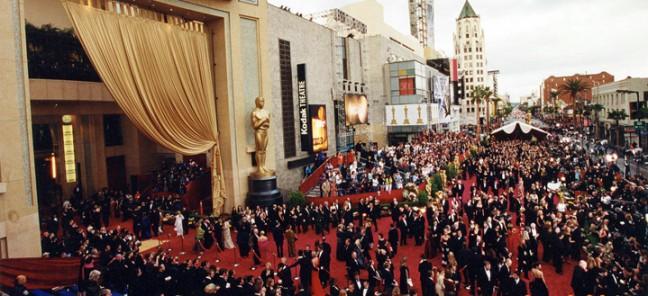As the year draws to a close, the blogs are already aflutter with excitement about the awards show season, which will take over the first three months of next year. Though films with promise generally come with buzz upon release, it’s time to start the process of elimination to determine who will be the best of the best. Who deserves the praise, the pageantry and glamor of an award? Every year, without fail, I get caught up in it all — the ranked lists by movie critics, the vlogs and videos by the online community and weird shouting matches over who deserves it more — the young ingénue or the seasoned veteran?
Though it’s all a little much — especially considering that the entire premise of awards shows is rich people giving other rich people golden idols — the event still holds significant meaning. To the public, award shows govern what they will watch, either in rentals or online streaming. To those in the industry, it’s a benchmark of talent and signals to others that one has a serious craft that lends itself to great performances, direction, cinematography and so on. There are many different awards out there, and some hold significant weight compared to others. For example, the Academy Awards and the Golden Globes are oftentimes seen as more important than the Independent Spirit Awards or People’s Choice Awards, though each honor actors in the film industry.
Though the Oscars aren’t quite as important to me now, they were everything to me when I started watching movies on my own. If a film was even nominated, it would go straight into the Netflix queue and arrive a couple short days later. I consider the awards significant to my development as a film lover, and I still watch them every year with my hairbrush in hand so I can give my Best Original Screenplay acceptance speech. Still, there’s a lot about the awards that I no longer value. For one thing, there’s considerable favoritism by the voters in the Academy. A poll from the 2013 Oscars shows that of the 5,765 voting members, 94 percent were white, 77 percent were male, two percent were black and less than two percent were Latino. More than 80 percent of voters were older than 50. Many of these people are from the same demographics, with the same ideas of what a good movie is. As a result, a huge number of winners are generally white Americans, though the awards also honor foreign films and people from every background.
Awards are becoming less and less important with the boom in internet reviewing. Every year, lists are compiled by people online in an effort to crown the best movies from that year. Oftentimes films considered less important artistically are in the top bracket. These include action films, animated films and even hard-to-love avant-garde films that rarely see love from different award circles. People are gravitating more and more towards this online medium now that it’s easier access to films of a wide variety. Though many people still look to these awards for confirmation that their choices are superior, there are so many differing opinions of what constitutes “good” in film. The internet is littered with “Best Films of All Time” lists, and they generally take from a wide scope of what constitutes best. A lot of it is taste, but I think everyone feels a bit alienated by large award shows because of their limited view.
Though the awards may not always choose the most unique picks, they do provide one crucial service to filmgoers: introducing audiences to a bevy of films they might never have seen without the stamp of approval from the governing bodies that vote for awards. Films with real heart, little financing and limited release can get huge publicity from the award show season, and the people making these films get to make more films because of this increased publicity. Take, for example, Jennifer Lawrence. She acted in the very small and independent film “Winter’s Bone” and got her very first Oscar nomination in 2010. This led to her being part of “The Hunger Games” franchise and her later win for Best Actress in 2012. Many big names in the industry only got credit for their work because of these awards. When Kathryn Bigelow won the Oscar for “The Hurt Locker,” she was the first female director to ever win the award. Though she has directed impacting films in the past, she gets much more attention now, which is pivotal for women who work in film.
Whether you curse the awards season or revel in its glitz and media firestorm, know that it does a little good for the filmmakers we all know and love so much. This year I will be sitting on the couch, hairbrush in hand, ready to be swept up in it all as I have every year before.


